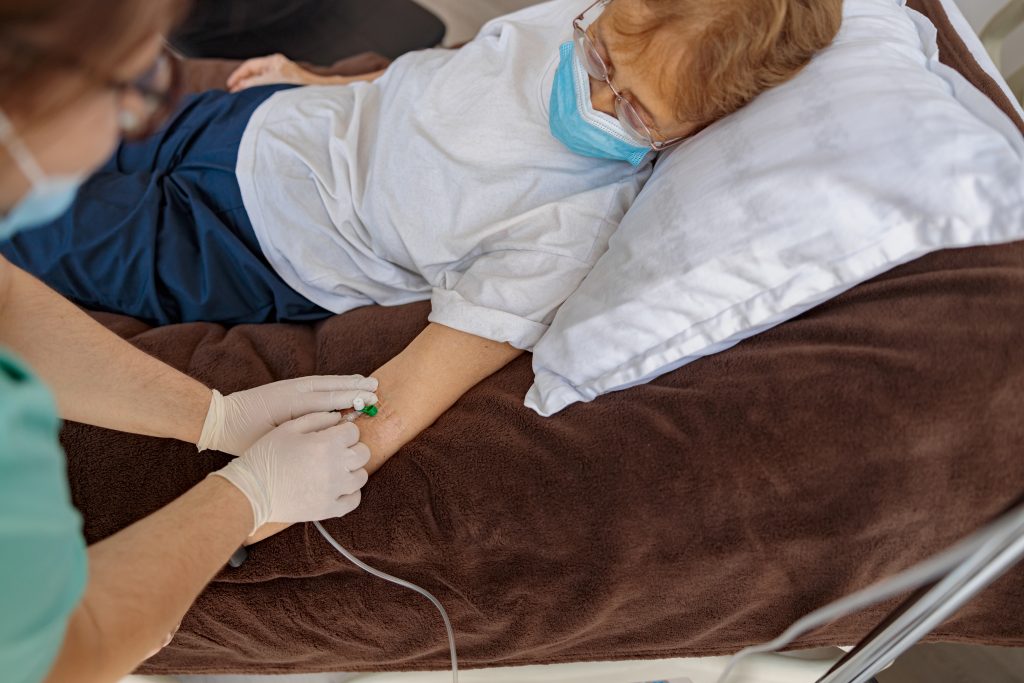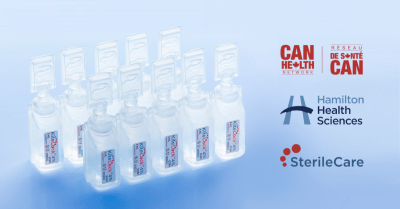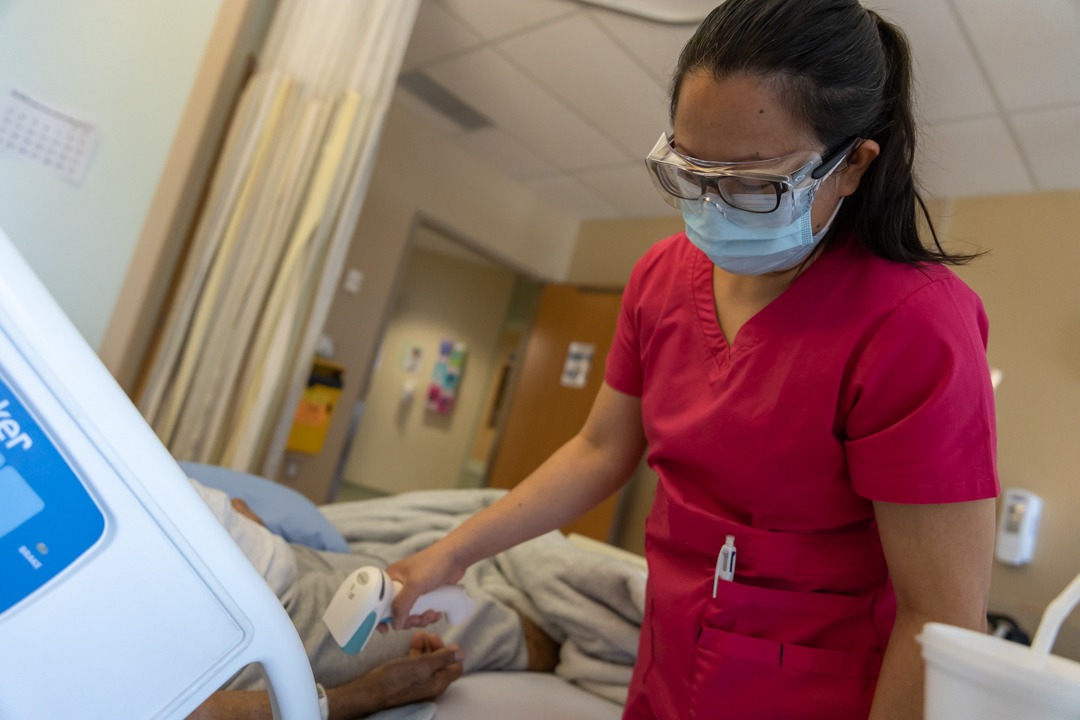
An innovative partnership proves effective at reducing infections
Hamilton Health Sciences (HHS) achieved a 60% reduction in venous catheter infections after a six month pilot using SterileCare’s KiteLockTM solution in select units at the Juravinski Hospital and Cancer Centre.
A venous catheter is a tube that’s inserted into the bloodstream, typically in the chest or upper arm, which is used to provide medication to patients. While this is usually the best option and commonly used with cancer patients, it does require careful monitoring for infections and blockages.
“it’s more important than ever to find new and innovative ways to benefit our patients.”

Ari Collerman
“We need to use these catheters to deliver medication however, it’s not without risks,” says Ari Collerman, chief of interprofessional practice at HHS. “We of course want to do everything we can to reduce those risks, which is why it’s important to test and implement new and innovative products designed for this purpose.”
KiteLockTM solution is one of the newest innovations used by health care professionals to clean the bacteria from patients’ venous catheters. This liquid solution aims to reduce the number of infections, the frequency of replacing venous catheters and the need for blood-thinning medications. For these reasons, HHS partnered with SterileCare through an ongoing Coordinated Accessible National (CAN) Health Network commercialization project.

The CAN Health Network facilitated the partnership between HHS and SterileCare to bring this new product to the hospital.
Finding solutions

Ted Scott
“As a large hospital network, implementing the use of a new product is a big undertaking,” says Ted Scott, chief innovation officer at HHS. “We first need to not only ensure it has benefits to our patients, but can be effectively integrated into our hospital and efficiently used by our staff.”
This is why HHS is working with the CAN Health Network, a federally-funded program that helps health-tech companies quickly and easily bring their innovations to the health care sector. It serves as a platform for companies like SterileCare to help meet the needs of health care organizations by offering products that have already gone through the research and development phase and are ready for large scale use.
“In our current health care landscape it’s more important than ever to find new and innovative ways to benefit our patients,” says Scott. “This is why collaborating with organizations like the CAN Health Network is vital in developing partnerships with the right companies to make impactful change.”
“We’re excited with the positive outcome of the KiteLock pilot”
Improving patient safety
Not only did the results reduce infection, but 88% of patients surveyed had a positive or neutral outlook on KiteLockTM solution, staff found it easy to use and it resulted in cost savings due to fewer infections. As a result, HHS is going through the necessary steps to have the product used regularly within the same units as the pilot and expand its use to additional units in other areas where there is an opportunity to improve the quality of care for our patients.
Collerman says, “We’re excited with the positive outcome of the KiteLock pilot and look forward to improving the care we provide to our patients with this innovative and evidence based product.”



